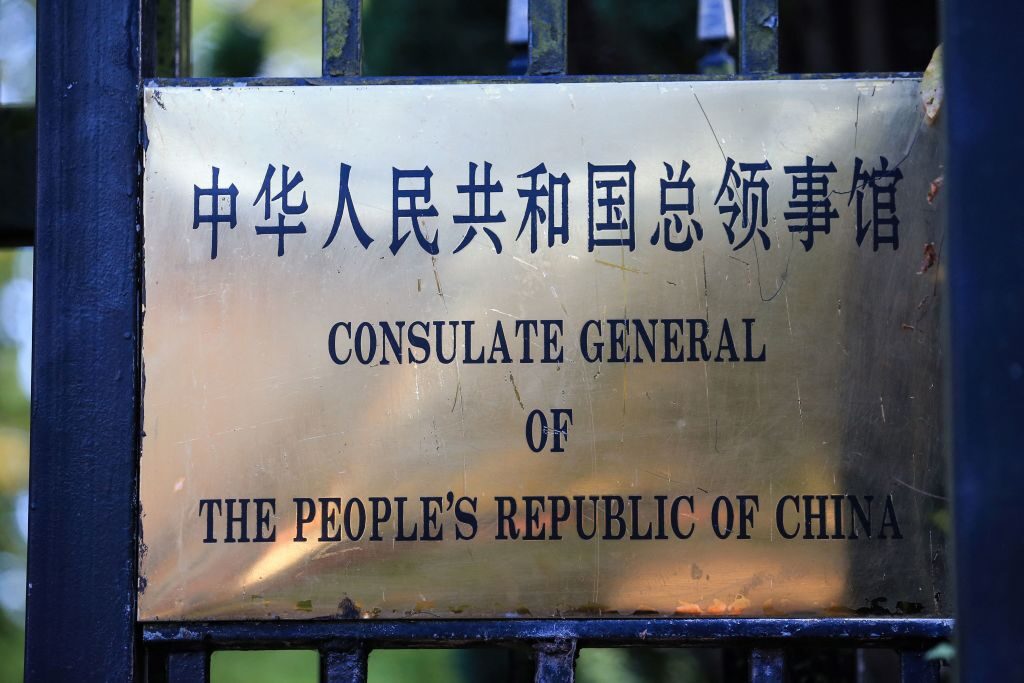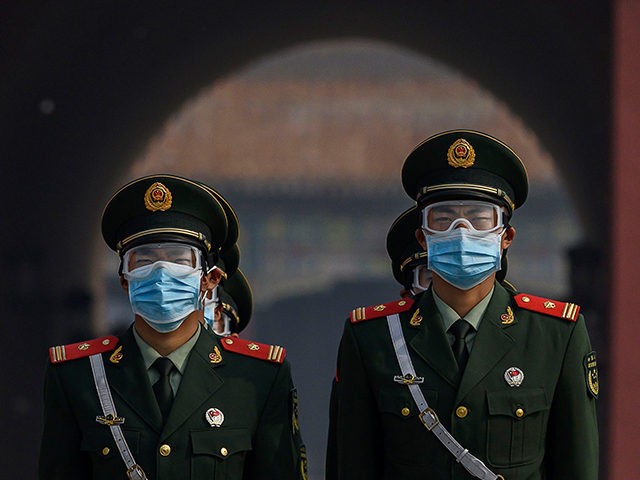In the course of attempting to spin the alarming discovery of Chinese police stations in foreign countries as merely “service centers” for Chinese living abroad, Foreign Ministry spokesman Wang Wenbin on Wednesday admitted the Communist tyranny used the coronavirus pandemic it unleashed as an opportunity to greatly expand its operations in other countries.
Wang was responding to reports in Dutch media about a government investigation into at least two illegally-operated Chinese police stations in the Netherlands, whose primary purpose appears to have been manipulating, intimidating, and silencing Chinese dissidents living abroad.
The UK Guardian noted the Dutch investigation was just the tip of a very ugly iceberg, as China allegedly opened dozens of these overseas oppression dispensaries across Europe and beyond:
The stations were first identified by a Spanish civil rights group, Safeguard Defenders, in a September report, which alleged that the Fuzhou and Qingtian police agencies had between them opened 54 “overseas service centres” in 25 cities across 21 countries.
Most were located in Europe, the report said, including nine in Spain, four in Italy, three in France, two in the Netherlands and two in the UK, in London and Glasgow. It said part of their purpose was to “persuade” dissidents to return to China.
“These operations eschew official bilateral police and judicial cooperation, violate the international rule of law, and may violate the territorial integrity of third countries by setting up a parallel policing mechanism using illegal methods,” the report said.
The Dutch Foreign Ministry stated the two Chinese police stations in the Netherlands were “illegal,” possibly a reference to violating the 1961 Vienna Convention on Diplomatic Relations, which China and the Netherlands both signed. The Dutch government said it was never formally notified about the stations, as required under the Vienna Convention.
“We are investigating exactly what they are doing here and will then take appropriate action,” the Dutch Foreign Ministry said.
Dutch media reports offered some clues to what the Chinese police might have been doing there by noting staff at the police stations were drawn from the same eastern Chinese provinces where many dissidents living abroad originated.
The Dutch also quoted Chinese websites that admitted the purpose of the foreign stations was “cracking down” on “criminal activities linked to overseas Chinese,” and some dissidents living in the Netherlands testified the Chinese Communist police menaced them, threatened them with physical violence, and threatened their families back in China.
Canada on Thursday announced it has launched an investigation into similar Chinese Communist activity on its soil. As with the Netherlands, Canada described the activities of the Chinese enforcers as “illegal.”
“The RCMP takes threats to the security of individuals living in Canada very seriously and is aware that foreign states may seek to intimidate or harm communities or individuals within Canada,” the Royal Canadian Mounted Police stated.
A prosecution against Chinese agents currently underway in the United States alleges a Chinese police station in Toronto was used to coordinate a successful intimidation operation against a Chinese national living in New York. The individual in question was accused of “embezzlement” by a Chinese Communist agency that has been known to target political dissidents with dubious charges. In this case, the target was eventually bullied into returning to China to face prosecution.
The Chinese embassies in the Netherlands and Canada initially denied all knowledge of the police stations, but when that did not work, Wang was dispatched to test out a new Communist narrative that the police stations on foreign soil are entirely benign operations that merely help Chinese nationals living abroad with mundane bureaucratic tasks.
Wang claimed on Wednesday that the allegations of abusive behavior by Chinese agents are “simply untrue.”
“Due to [Chinese coronavirus], a large number of overseas Chinese nationals have been unable to return to China in time for services such as renewing their driving license. As a solution to these difficulties, relevant sub-national authorities have opened up an online licensing platform,” he said, inadvertently confirming allegations by human rights organizations that Beijing used the pandemic as an opportunity to greatly expand its surveillance operations abroad.

A picture taken on October 17, 2022 shows the entrance plate of Chinese consulate in Manchester a day after an incident involving a scuffle between Hong Kong pro-democracy protesters and Chinese consulate members of staff, happened outside the building. (LINDSEY PARNABY/AFP via Getty Images)
“Chinese public security authorities are fully committed to fighting transnational crimes in accordance with the law, while strictly observing international law and fully respecting the judicial sovereignty of other countries,” Wang insisted – which, of course, is the exact opposite of what actually happened, since the Chinese agents at the secretive police stations did not respect international law or coordinate with officials in the countries they occupied.
Safeguard Defenders, the group that blew the whistle on China’s network of police stations in Europe, said the installations in the Netherlands are “part of a growing transnational campaign to instill the same regime of political terror inside China across the world.”
“Safeguard Defenders would like to note that such overseas Chinese diaspora associations can play a positive role in assisting Chinese residents and tourists alike at their location, but as proven above, at least some of them play a far more nefarious role,” the group said in its report last month on the discovery of at least 54 stations engaged in surveillance and intimidation operations.
“In addition, many such associations are tied to the Chinese Communist Party’s United Front Work Department, one of whose aim is to control Chinese diaspora populations, and finally, few are likely registered to handle a liaison role with the Chinese police, in violation of local regulations for such associations in some countries,” the report added.

COMMENTS
Please let us know if you're having issues with commenting.